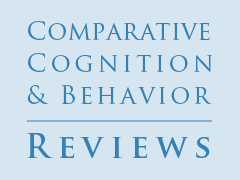
Publication Ethics & Malpractice Policy:
Comparative Cognition and Behavior Reviews is a journal dedicated to best practices in ethical matters related to publication. The prevention of publication malpractice is one of the principal responsibilities of the editors and editorial board. Any type of unethical behavior is unacceptable. Authors assert that all manuscript contents represent original or appropriately recognized scholarship. Plagiarism will result in the rejection of a manuscript. The duties outlined below for editors, authors, and reviewers are derived from the COPE Code of Conduct for Journal Editors.
Duties and Responsibilities of the Editors
- Fairness – The editors must ensure that each manuscript received by the Journal is reviewed without regard to sex, gender, race, religion, citizenship, etc. of the authors.
- Confidentiality – The editors must ensure that information regarding manuscripts submitted by the authors is kept confidential.
- Conflict of Interest – The editors will not use unpublished materials disclosed in a submitted manuscript for his own research without written consent of the author.
- Review Process – Editor must ensure that each manuscript is initially evaluated for appropriateness for the journal. If so, the manuscript is forwarded to at least two reviewers for single-blind peer review, each of whom will make a recommendation to accept, reject, or revise the manuscript.
- Publication Decision – Based on the peer reviews the editor can accept, reject, or request revisions to the he manuscript. The editorial staff can resubmit a revised manuscript to additional reviewers if required. The final decision for the publication of a submitted manuscript is the responsibility of the editors.
Duties and Responsibilities of the Authors
- Originality – Authors must certify that what they have written represents original scholarship.
- Publishing Standards – Manuscripts will follow the submission guidelines of the journal.
- Concurrent Publication – Authors must certify that the manuscript is not being considered for publication elsewhere.
- Acknowledgement – Authors should acknowledge all sources of data used in the research and cite publications that have been influential in the work.
- Authorship – Authorship should be limited to those who have made a significant contributions. Authors also certify that all the authors have agreed to the submitted version of the manuscript and their inclusion as co-authors. The corresponding author must maintain the communication with the co-authors during the processing of the manuscript.
- Financial Disclosure – Any sources of financial support must be disclosed.
- Reporting of Errors – Significant error or inaccuracy in the manuscript must be reported to the editors upon discovery.
Duties and Responsibilities of the Reviewers
- Confidentiality – Received manuscripts are confidential documents. Any information regarding manuscripts submitted by authors must be kept confidential as privileged information.
- Conflict of Interest – Reviewers must disclose any conflicts of interest as soon as discovered in the review process.
- Objectivity – Review of submitted manuscripts must be done objectively and the reviewers should express their views clearly with supporting arguments. Submitted manuscripts should be evaluated based on their scientific and intellectual content.
- Timeliness – In the event that a reviewer feels it is not possible to complete a timely review of the manuscript, then this information must be communicated to the editor so that the manuscript can be fairly evaluated by another reviewer.
Copyright Information:
![]() CCBR is an open-access electronic journal and listed with the Directory of Open Access Journals. It is licensed under a Creative Commons Attribution 4.0 License. For articles from Volume 1 – Volume 8, authors retain all copyright on their own articles.
CCBR is an open-access electronic journal and listed with the Directory of Open Access Journals. It is licensed under a Creative Commons Attribution 4.0 License. For articles from Volume 1 – Volume 8, authors retain all copyright on their own articles.
All restrictions are retained by the authors. Authors give permission to the Comparative Cognition Society to publish their article on the web and to arrange for the indexing of their article and its free distribution by the different electronic mechanisms of CCBR.
Conflict of Interest:
Comparative Cognition & Behavior Reviews is an open-access journal of substantive reviews and constructive critiques. Its foundation is the peer review process, where carefully selected outside experts are used to critically evaluate the scientific quality of each article. Every effort is made to prevent conflicts of interest, whether scientific, institutional, financial, or personal, at each step of the review process. The initial consultation, determination, and resolution of any potential conflicts of interest are done by the journals’ co-editors. The final adjudication of any conflict of interest issue is by the Comparative Cognition Society’s standing committee on publications.
Care and Use of Animals in Research:
Because of the journal’s focus on reviews that synthesize a wide variety of experiments, authors are not asked to provide documentation on the adherence of each study to their respective institutional or national guidelines for the care and use of animals. It is the society’s and the journal’s position that such guidelines should be followed during the conduct of all such research.
